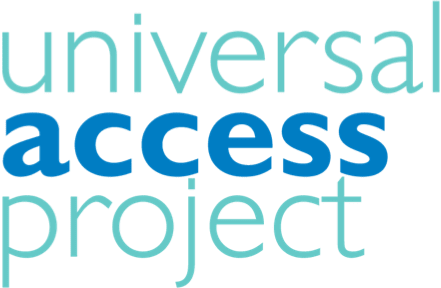U.S. Foreign Policy Partners
Through advocacy, strategic communications and media engagement, the Universal Access Project supports transformational U.S. foreign policy in the pursuit of health and rights for all.
We connect change-making donors and leading advocates to advance U.S. leadership on global sexual and reproductive health, rights and justice.
From advocacy groups to justice organizations, research institutes and more, each of our foreign policy partners plays a unique and essential role in advancing the movement for global sexual and reproductive health, rights and justice (SRHRJ) through bold U.S. foreign policy leadership. The Universal Access Project and our partners are committed to upholding high standards of equity, transparency and movement building.
Learn more about the principles that guide our U.S. Foreign Policy partnerships.
Bill & Melinda Gates Foundation
“I am proud that the Bill & Melinda Gates Foundation has invested in UAP for over a decade – recognizing that to truly advance global reproductive health we need a coordinated advocacy response to shape US foreign policy – where partners come together, recognize each other’s strengths and reinforce each other’s messages. With the UAP team providing deep expertise, connections and strategic guidance, we have found that our investment has a larger impact (and is more efficient) than if we had granted separately to all the partners involved.”
Del Mar Global Trust
“Del Mar Global Trust recognizes that empowering women is one of the most effective strategies to address global climate change. We are proud to contribute to UAP’s efforts to permanently include reproductive justice in U.S. foreign policy, because we believe that everybody benefits when women have the power to make their own decisions regarding their reproductive and sexual health.”
Muirfield Foundation
“Maximizing the impact of my philanthropy is very important to me as a donor. And because my contribution to the Universal Access Project has the potential to unlock hundreds of millions of dollars in additional U.S. funding, I am able to leverage far more than I could do as an individual donor or foundation."
Summit Foundation
"The Summit Foundation has supported UAP for over 12 years. With every twist and turn in the politics of the U.S.'s role in global sexual and reproductive health, rights and justice, UAP has worked with its partners to execute innovative, fresh strategies to maintain U.S. leadership, even when most challenging, and more recently to extend and refresh that leadership. In many countries where the U.S. provides foreign assistance, millions of women and girls still cannot yet say, to paraphrase UNFPA's 2021 annual report, that ‘my body is my own.’ We see our funding for UAP as an incredibly well-leveraged grant alongside other donors to address women's lack of bodily autonomy globally. Even as Covid-19 has exacerbated this reality, UAP has continued to bring new energy and ideas through its alliances with and critical funding to stellar NGOs conducting advocacy in DC, as well as through alliances with corporations, media, UN agencies and new and old philanthropic partners. We are proud to be an ‘old’ partner on this amazing initiative!"
Vidiri Futuro Foundation
“I deeply understand the importance of elevating the voices of local and international experts and reproductive health advocates – especially women of color – and believe this approach to reproductive justice is the correct path to take … promoting the women leaders of color around the world who are actually feeling the pain of discrimination and doing the heavy lifting of defending women who lack access to reproductive health services, let alone to ‘bodily autonomy.’”
WestWind Foundation
“UAP is a fundamental piece of WestWind's reproductive health and rights advocacy strategy. It builds a strong framework for the community by giving the grantees the opportunity to learn from each other and better advocate for the sector's needs as a whole. Through its years of grantmaking, UAP has built a much-needed sense of community in the field with both its funders and its grantees.”








